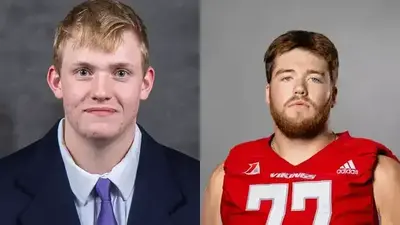Des Moines University recently issued the following announcement.
Simon Geletta, Ph.D., a professor of public health at DMU, had little reason to expect he’d ever give a lecture at 1 a.m. But then again, most of us had little reason before 2020 to expect a pandemic would change daily life worldwide. Both happened, the latter the cause of the former.
In December 2019, Dr. Geletta received news he’d been selected for the Mandela Washington Fellowship Reciprocal Exchange Program. The program is a component of the Mandela Washington Fellowship for Young African Leaders, the flagship program of the U.S. government’s Young African Leaders Initiative and a program of the U.S. Department of State’s Bureau of Educational and Cultural Affairs. The Reciprocal Exchange enables Americans to travel to sub-Saharan Africa to continue collaborations with Fellowship alumni, building on strategic partnerships and professional connections developed during the Mandela Washington Fellowship in the United States.
Dr. Geletta had planned to travel in April 2020 to Addis Ababa, Ethiopia, to teach leaders from the city’s 10 health districts about using public health strategies to help populations with chronic disease. In February, the program was put on hold due to COVID-19 as well as civil war in the country.
Dr. Geletta in his DMU office, Ryan Hall
“They said they’d reschedule my trip, but that never happened,” he says. “In December 2020, we needed to rethink how we were going to do the fellowship.”
The chosen solution, as with so many group interactions during the pandemic, was teaching the course virtually. Dr. Geletta submitted a new proposal that compressed the 10-day project into four lectures he gave during two days in December.
“There were two morning sessions and two afternoon sessions. When I was preparing them, it was completely out of my mind that I was going to have to teach them during the midnight hours,” he says. “I stayed up until 1 a.m. to start the lecture, finish it at 2:30 a.m. and then went to sleep for two and a half hours to get up and give their afternoon lecture at 5 a.m.”
It didn’t help that those two days were amid an exam week at DMU, so he was busy grading papers during the day. But “it was the only way forward,” he says. “I had to use several alarm clocks, but it was fun, and I had very good feedback from the 11 health leaders who participated.”
Rachel Reimer, M.S., Ph.D., chair of DMU’s public health department, which encompasses the University’s master’s degree programs in public health and health care administration, says Dr. Geletta’s efforts for the fellowship represents his commitment to students’ learning and success.
Dr. Geletta’s class of health leaders in Addis Ababa, Ethiopia
“He just quietly carried out this project, lectured twice during the middle of the night to meet the needs of those students and never complained for a second,” she says. “Dr. Geletta just always serves his students with this level of dedication, and so much of it goes unseen. I believe this project and his dedication deserve recognition and celebration. We are so lucky to have him in our department.”
The spark for Dr. Geletta’s Mandela Washington Program Fellowship was lit back in 2011, after he had been working since 2007 with the Iowa Department on Aging and the Iowa Department of Public Health to implement Stanford University’s Chronic Disease Self-Management Program in the state. The program is designed to teach adults with a variety of chronic health conditions ways to manage their disease and enhance their health. At the time, Drake University in Des Moines was hosting a Mandela Washington fellow, Abinet Tekle Hagos, who owns a nutritional training business in Addis Ababa. He participated in a health panel discussion at DMU during which he noted that underdeveloped countries lack public health expertise and strategies for helping people with chronic disease.
“I told him that in the U.S., we do, and we can share,” Dr. Geletta recalls. “We started talking, and out of that we developed the proposal for my fellowship.”
He focused his fellowship lectures on public health program development and assessment, skills needed by health leaders in many underdeveloped countries. He says the fellowship was an “experiment” for providing public health education in a different culture. Acknowledging that he “just scratched the surface” during the two days, he believes it can help foster continued networking and sharing of knowledge.
“It’s an opportunity for us as public health-focused academicians. We want to continue to give people the education they need to be successful in enhancing health,” Dr. Geletta says. “There will be more networking opportunities if we aren’t afraid of getting up in the middle of the night to provide them.”
Original source can be found here.




 Alerts Sign-up
Alerts Sign-up